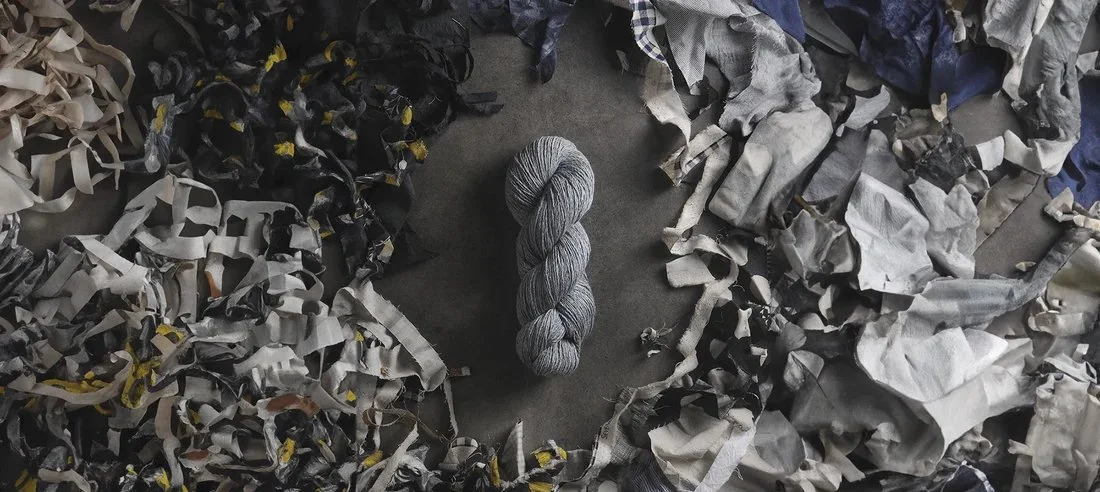
NSW Parliament House Fountain Court
29 April - 29 May
Step inside the world of Fashioning the Future, an inspiring exhibition dedicated to the future of sustainable fashion. Discover how visionary students and designers, innovative technologies and eco-conscious practices are transforming the fashion industry for the better. From garments made with recycled materials, to pioneering cradle-to-cradle designs, the exhibition showcases the cutting-edge trends and creative solutions driving the shift toward a more sustainable and ethical wardrobe.
A Circular Clothing Masterpiece
This 53-piece garment was commissioned by Seamless Australia and was created by the students, staff and alumni of the Fashion Design Studio (FDS) at TAFE NSW. The garments were donated by the Salvos Stores.
This creation visually represents the average number of clothing items purchased by Australians each year as detailed in the 2024 report from Seamless Australia. It also demonstrates the enormous potential of reusing, recycling and reimagining the way we use textile products for a more circular clothing industry.
Weighing 10 kilograms, the garment is constructed from a variety of garments including; an Islamic Thawab which serves as a foundational piece to which the skirt is attached, a denim pinafore and a collection of jacket components to create the jacket. On closer inspection you will find a variety of shirts, skirts, dresses, accessories and under garments. There is even a baby romper featured! Natural dyeing techniques using eucalyptus leaves were also utilised, to highlight the inherent beauty of this dyeing process and to bring some cohesion to the final look.
Watch the behind-the-scenes video to see how this garment was created.
A.I. / Athleisure / Advanced Manufacturing
This research is set in the context of circular economy innovation in athleisure clothing, a combination of athletic and leisure clothing worn for everyday purposes, such as yoga pants and compression garments. The increasing uptake of athleisure garments as everyday clothing contributes exponentially to the climate crisis, surpassing the unsustainability of fast fashion due to the industry’s extensive use of blended plastic-based textiles.
It questions the preconceived materiality of athleisure clothing by disassembling the systems of athleisure clothing production, which lead to pollutive consumption patterns. This is done by developing experimental textiles and garment prototypes in collaboration with generative AI to get engagement and user feedback prior to garment production. The feedback is translated into seamless knitted garment coordinates using natural materials such as Australian merino wool.
About the scholar
Wajiha Pervez is an experimental textile designer, academic and a PhD researcher at the Centre of Excellence in Sustainable Fashion and Textiles. She researches relationships between designers, generative AI, craft, and materials in the context of sustainable fashion and the circular economy. Her work has been showcased in exhibitions and conferences in Australia, Dubai, Qatar, Italy, Russia, the UK, and Iran.
Thank you to our industry collaborators
M.J. Bale
Australian menswear brand M.J. Bale supported an upcycling project with first year fashion students from UTS and Fashion Design Studio at TAFE NSW, resulting in our exhibition ‘Deconstructed Realities’, some of the pieces that are on display in this exhibition.
In 2024, quality control at M.J. Bale identified a collection of ‘imperfect’ shirts that were unable to be sold. Rather than disposing or recycling the unsaleable shirts, the brand reached out to the Centre to ask whether they could be used for teaching purposes. This project offered a unique opportunity to show students the challenges of fashion brands in achieving sustainability goals – even for B-Corp certified companies like M.J. Bale – as well as the opportunity to see and feel a quality garment constructed from quality materials.
High Tea with Mrs Woo
For over a decade, Australian slow fashion business High Tea with Mrs Woo have been collecting and storing their post-production fabric cuttings (offcuts, natural fibre only) whilst continuing to search for a viable solution to close the loop on clothing production - demonstrating a long-term commitment to sustainability and the advancement of the circular economy.
A solution has been made possible with the support of a City of Sydney Ideas and Innovations Grant. Partnering with textiles recycling expert Dempstah (Melbourne), The Billie Upcycling (Hong Kong) and The Centre of Excellence in Sustainable Fashion & Textiles, this innovative project aims to transform fabric offcuts into new, wearable knitted garments.
The fabric cuttings from High Tea with Mrs Woo's clothing production is being developed into high quality recycled textile yarn that will be suitable for manufacturing garments using the cutting-edge Shima Seiki Wholegarment seamless industrial knitting machine at UTS, the first of its kind in a University setting worldwide.
Epson
The fabric banners hung along this wall were created in greater Sydney by Epson on their innovative Monna Lisa 8000 digital inkjet fabric printer. Epson is a global technology leader whose philosophy of efficient, compact and precise innovation enriches lives and helps create a better world. The company is focused on solving societal issues through innovations in home and office printing, commercial and industrial printing, manufacturing, visual and lifestyle. Epson's goal is to become carbon negative and eliminate use of exhaustible underground resources such as oil and metal by 2050.
The Monna Lisa range represents a scalable and innovative direct-to-fabric printing solution that enhances productivity and drives results for our customers. Engineered for precision printing on a wide variety of natural & blended fabrics, the Monna Lisa ML-8000 leverages a suite of high-performance technologies for ease of use and to minimise downtime while producing astounding image quality with every print. Its Genesta pigment inks are ECO PASSPORT certified to meet globally recognised standards for more sustainable textile printing and, being a digital printing platform, the Monna Lisa ML-8000 drastically cuts waste and uses far less water than traditional analogue printing methods.




